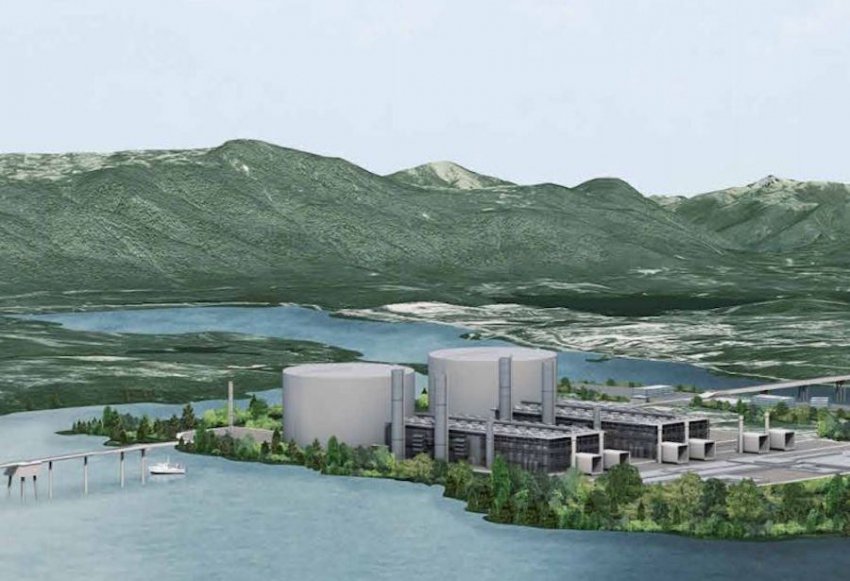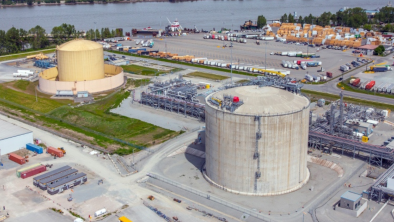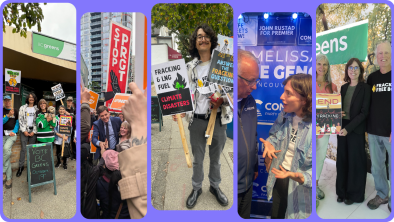B.C. tables bill to lay guidelines for proposed LNG plant
The Globe and Mail

B.C. Finance Minister Mike de Jong has tabled a bill designed to spell out the rules for the liquefied natural gas industry, placing the Liberal government’s pro-LNG agenda on a collision course with the NDP.
The highlight of the LNG bill is a project development agreement between the government and Pacific NorthWest LNG. The agreement lays out the tax regime and LNG rules for the long term, reducing the risks for the consortium’s Asian backers.
Mr. de Jong said Monday he is looking forward to jump-starting a “whole new industry and a whole new era of opportunity in B.C.,” contrasting the Liberals’ embrace of the fledgling LNG sector with what he calls the NDP’s indecision. “They are, certainly in my view, twisted up in knots over this one,” Mr. de Jong told reporters in Victoria.
B.C. Opposition NDP Leader John Horgan, however, said his party will be opposing the bill because it has flaws, stressing that the NDP is not against resource development. “We want to make sure we do it in a way that benefits all British Columbians, not just meeting a political promise that was made during an election campaign,” Mr. Horgan said at the start of a rare summer session of the B.C. Legislature.
Backers of Pacific NorthWest LNG gave conditional approval to the venture last month, subject to receiving a federal environmental certificate and having the B.C. Legislature ratify the 25-year project development agreement. The summer session is expected to stretch into late next week, culminating in what political observers say will be ratification of the government’s pact with the Petronas-led group – a template for other proposals.
During the 2013 election campaign, the Liberals touted LNG as the ticket to economic prosperity. On Monday, Premier Christy Clark emphasized that companies will create thousands of jobs in building and operating LNG export terminals in British Columbia. “My view, and I’ve expressed this to all the proponents, is British Columbia first, Canada second and then start looking in the United States and other places around the world for temporary employees,” Ms. Clark said at a news conference.
The NDP has concerns about temporary foreign workers playing a potentially large role in helping build a terminal planned by Pacific NorthWest LNG, a joint venture led by Malaysia’s state-owned Petronas. Assuming some labour shortages within Canada, skilled foreign workers could potentially account for roughly 40 per cent of the work force required to build the proposed Pacific NorthWest LNG terminal on Lelu Island, located near Prince Rupert, according to regulatory filings.
Pacific NorthWest LNG president Michael Culbert welcomed the introduction of the LNG bill. “Our facility alone is expected generate up to 4,500 jobs during peak construction, as well as up to 330 long-term careers in operations and another 300 spinoff jobs in the local communities,” Mr. Culbert said in a statement. “Our commitment is to hire as many local, British Columbian and Canadian workers as possible to support our facility in both construction and operations. To fulfill this objective, we are working with a number of associations, educational providers and working groups to help prepare the B.C. work force for upcoming job opportunities.”
Mr. Culbert noted that Progress Energy Canada, owned by Petronas, is already a major employer in the natural gas fields of northeastern B.C. The natural gas would be piped to northwestern B.C.
The NDP and groups such as the Wilderness Committee warn that B.C. taxpayers will be getting a raw deal, but B.C. LNG Alliance president David Keane said project development agreements will provide protection against future changes that might target the LNG sector. “We disagree with the notion that additional taxes can be characterized as a giveaway or subsidy,” he said in a statement.
Environmentalists and the Lax Kw’alaams First Nation are worried about the ecological impacts, including on juvenile salmon habitat near Lelu Island. Voters Taking Action on Climate Change and SkeenaWild Conservation Trust added that on the federal front, Ottawa is proposing to make the Port of Prince Rupert less accountable when it comes to proposed LNG developments.
Pacific NorthWest LNG estimates $36-billion will need to be spent to make its planned exports a reality in 2019. The huge budget from the wellhead to deep-water berth includes $11.4-billion for the LNG export terminal on Lelu Island and an average of more than $2-billion annually in spending from 2013 through 2018 on northeast B.C. natural gas drilling projects.
Photo Credit: Pacific Northwest LNG illustration


